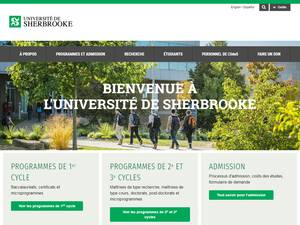The transition to a net zero-carbon economy requires producing renewable fuels and chemical from hydropower, solar, and wind. Canada is in a position to become world leader of green and blue hydrogen with its abundant supply of fresh water and hydropower, which has one of the world's lowest carbon footprints at 0.5 kgCO2e/MWh in 2019. On the other hand, part of Canadian economy is based on oil & gas production and export, and this industry, contributes to more than 1 % of the global GHGs emissions via the activities of venting and flaring associated solution gas, even though great improvements were made recently. Canada has just launched the hydrogen strategy and aims at becoming a net H2 exporter developing decarbonized energy economy by 2030. Methane thermally or catalytically decomposes into solid carbon and hydrogen (CH4 > C +2 H2), with no emissions of greenhouse gases. However, coking is a great impediment to the development of a small-scale pyrolysis. This reaction is of a great interest. Little information is available concerning long residence time (high hydrocarbon conversion) pyrolysis as coking blocks the reactor, which is normally a plug flow fixed bed type reactor. All available literature on methane pyrolysis focuses on hydrogen production. However, if we assume to burn the hydrogen produced to generate the heat necessary to convert natural gas, we will need to combust around 40% of the hydrogen produced by the reaction (calculation done using the LHV of H2 and 40% efficiency).
We aim to develop a technology that permits oil and gas producers to transform methane in solid carbon and hydrogen, using this latter to generate heat and water. The whole process results in the net production of solid carbon (which is a net avoided emission and a potential feedstock for steel or battery manufacturers) and water, whose use at the battery fields that employ hydrofracking to recover oil is intense.
The student will test methane pyrolysis (catalytic and non catalytic) and prepare the lab scale setup according to the highest safety standards and using a regular furnace to deliver heat for the reaction (Y1) in a fixed bed reactor. The student will also work on the development of analytical methods (Y1), and they will test the influence of different feedstock composition (Y2) via a partial factorial design, developing microkinetic and macro-kinetic that will be used in the simulation part (Y3). A Micro-GC will analyze online the outlet gas composition at stationary state while a MS will measure the composition dynamics versus operative parameters changes. First experiments will use a diluent, then pure methane will be the feedstock. They then will further improve all the analytics to consider natural gas as input, with and without sulphur and nitrogen contaminants that characterize all fossil sources (Y4-5). Eventually, experiments with real natural gas composition will prove the feasibility of the technology that we propose. There will be the chance to visit University of Milano (Prof. Pirola) where they will operate fixed bed reactors


 Founded in 1954, Université de Sherbrooke (University of Sherbrooke) is a non-profit public higher education institution located in the urban setting of the large town of Sherbrooke (population range of 50,000-249,999 inhabitants), Quebec. This institution has also branch campuses in the following location(s): Longueuil. Officially accredited and/or recognized by the Ministère de l'Éducation et de l'Enseignement supérieur, Québec (Ministry of Education and Higher Education, Quebec), Université de Sherbrooke (UdeS) is a very large (uniRank enrollment range: 40,000-44,999 students) coeducational higher education institution formally affiliated with the Christian-Catholic religion. Université de Sherbrooke (UdeS) offers courses and programs leading to officially recognized higher education degrees such as pre-bachelor degrees (i.e. certificates, diplomas, associate or foundation degrees), bachelor degrees, master degrees, doctorate degrees in several areas of study. See the uniRank degree levels and areas of study matrix below for further details. This 65 years old higher-education institution has a selective admission policy based on students' past academic record and grades. International students are welcome to apply for enrollment.
Founded in 1954, Université de Sherbrooke (University of Sherbrooke) is a non-profit public higher education institution located in the urban setting of the large town of Sherbrooke (population range of 50,000-249,999 inhabitants), Quebec. This institution has also branch campuses in the following location(s): Longueuil. Officially accredited and/or recognized by the Ministère de l'Éducation et de l'Enseignement supérieur, Québec (Ministry of Education and Higher Education, Quebec), Université de Sherbrooke (UdeS) is a very large (uniRank enrollment range: 40,000-44,999 students) coeducational higher education institution formally affiliated with the Christian-Catholic religion. Université de Sherbrooke (UdeS) offers courses and programs leading to officially recognized higher education degrees such as pre-bachelor degrees (i.e. certificates, diplomas, associate or foundation degrees), bachelor degrees, master degrees, doctorate degrees in several areas of study. See the uniRank degree levels and areas of study matrix below for further details. This 65 years old higher-education institution has a selective admission policy based on students' past academic record and grades. International students are welcome to apply for enrollment.